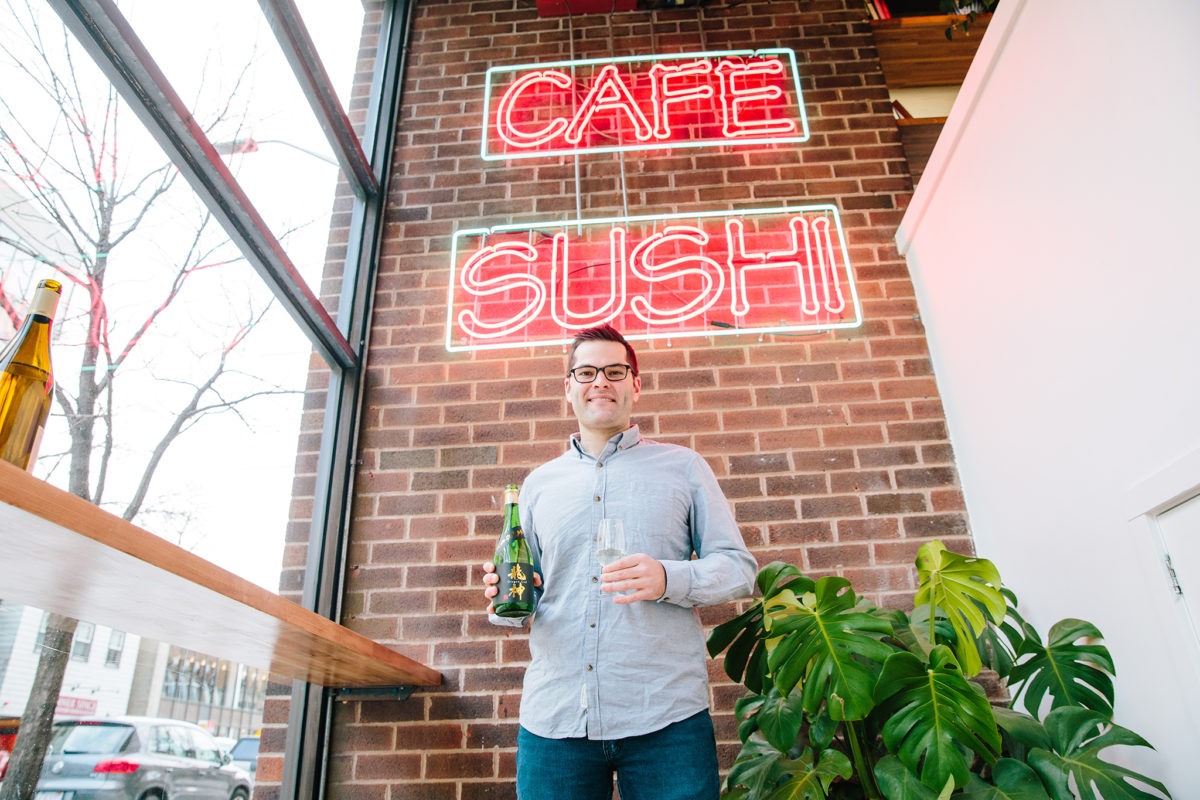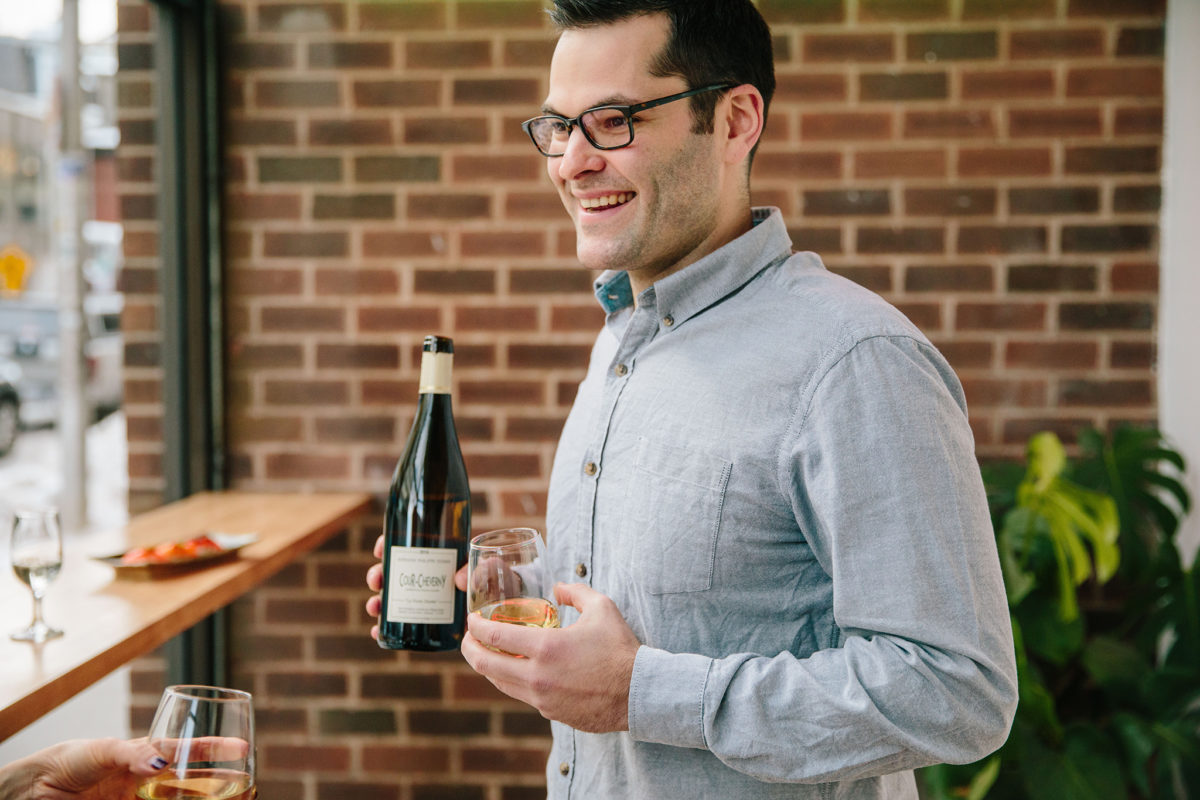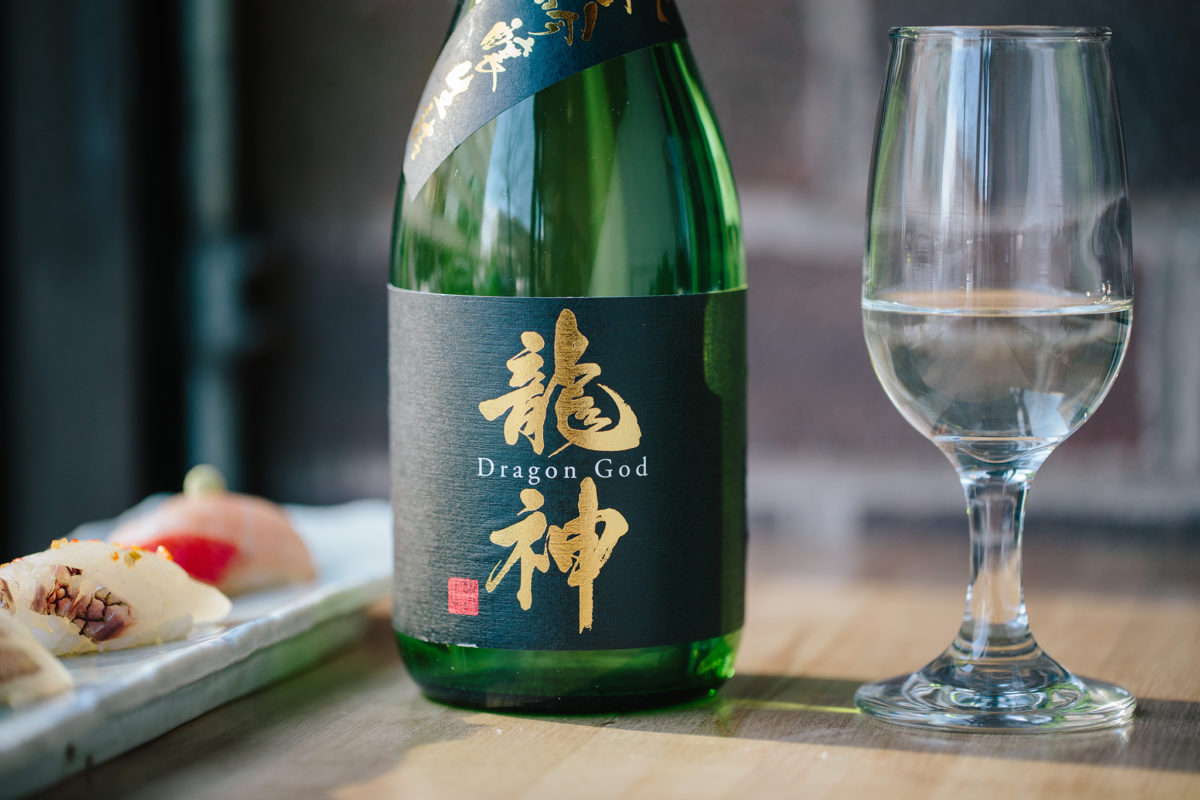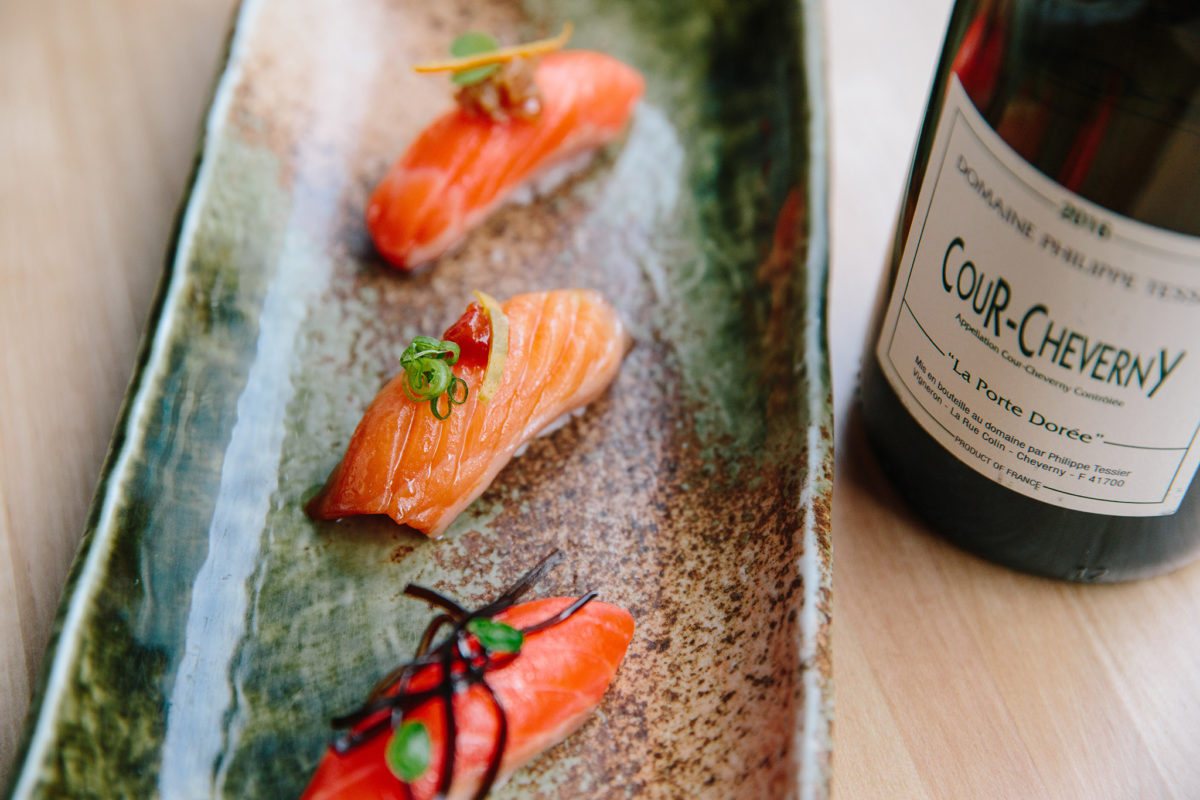
Zach Lieberman · Cafe Sushi

Olivia Rose Vienneau · Sycamore
Merrick Gilroy · Tasting Counter
Curious about restaurant wine lists? Each month, Boston Globe wine columnist Ellen Bhang chats with a sommelier about a couple of terrific bottles and recommends food pairings—you come away a savvier sipper.
Zach Lieberman may not be clairvoyant, but he has always had the enviable ability to intuit his next steps. What might surprise you is just how early he started forging that path.

“High school wasn’t the place for me, so I dropped out and got my GED,” explains the general manager of Cafe Sushi. He was just 16 years old when he left his family’s home in Lexington, Massachusetts, and moved to Cambridge with a friend. Lieberman knew he wanted to experience life, but on his own terms. Perhaps, he thought, a job in a restaurant was calling?
“I knew I loved food, and I had just read ‘Kitchen Confidential,’” Lieberman recalls, referring to chef Anthony Bourdain’s tell-all memoir. “My brother gave it to me, and said, ‘You’ve got to read this, it’s awesome!’” But Lieberman says it was “pure happenstance” that he learned about a backwaiter position at Tony Maws’ Craigie Street Bistrot, the predecessor of Craigie on Main. He saw the job on Craigslist.
“I stayed there two years, just learning an insane amount, including wine,” he says about his time at Craigie. Later he went to work at Oleana, where his wine education continued. “Technically, I was underage. I couldn’t drink, but I could sit in wine classes,” he recalls. By the time he was assisting with the drinks program at Island Creek Oyster Bar, he could taste everything—as well teach colleagues—out in the open.
Lieberman discovered Cafe Sushi around the time that he was general manager and wine director at Sycamore in Newton Centre. Owned by the Imura family since 1984, the beloved Harvard Square restaurant is well known for its pristine fish and fiercely loyal following. “I was going as a regular, coming in to eat, and always needing to come back,” he says. “Finally, I reached out across the bar.”

Second-generation chef and restaurateur Seizi Imura extended back the hand of friendship. Over beers and talk about the chef’s love of boxing, the seed of an idea began to grow. Lieberman wanted to work at Cafe Sushi, and told Imura so. “He needed time to size me up,” comments the wine pro. “It wasn’t immediate, but the tracks were laid.”
Today when you step inside the sleekly renovated Cafe Sushi, you can sense that change is afoot. With Lieberman at the helm, the beverage program is poised to grow. Fresh ideas are already beginning to flow. The fact that the sake list has more options than ever is no accident. In a move that now seems prescient, Lieberman traveled to Japan in 2017, just after leaving Sycamore and before starting a sales job for natural wine distributor Olmstead Wine Company. Intent on learning more about the beverage, he toured several sake breweries over the course of a month. “Most Americans don’t know sake,” he explains. “But you don’t have to be able to pick out melon notes or know the polishing rate [of the rice] to enjoy it.”

One such bottle, called “Dragon God,” is from producer Ryujin Shuzo, located near Tokyo. The rice used to make this junmai daiginjo is milled precisely so that only 50 percent of each grain remains. Polishing away the outer layer to reveal the starchy inner core is a key step toward crafting this refined classification of sake. The term “namazume,” Lieberman explains, refers to sake that has been pasteurized just once, resulting in a fresh, fruity profile. “It’s really clean,” he says. “Served at cold temperatures, it’s a little minty and very elegant.”
The sake’s gentle sweetness and orange blossom notes pair winningly with the second course of the Omakase, a style of dining where the chef selects every dish that arrives to your table. One evening, Imura plated three nigiri. Young sea bream was adorned with salt-pressed Napa cabbage. A fish called madai was sprinkled with kosho seasoning crafted with Cara cara orange and chilis. Golden eye snapper was brushed with house-aged soy sauce and garnished with freshly grated wasabi.

Alongside the Omakase’s third course, Lieberman is pouring the 2016 vintage of an expressive white wine called “La Porte Dorée,” crafted from organically grown Romorantin grapes. It’s made by second-generation winemaker Philippe Tessier in France’s Loire Valley. “I love Cour-Cheverny’s versatility,” says the wine pro, referring to the appellation. “It immediately has acidity and minerality, and a tangy, lactic fruit yogurt thing that can stand up to the middle part of the meal.”
The ocean trout, char, and king salmon featured in the nigiri were deliciously rich, with robust garnishes to match. Soy-braised kombu and sansho pepper plant leaves adorned the first piece; roasted sesame oil, spicy Korean chili paste, and preserved lemon peel topped the next; and applewood-smoked cipollini onions, white miso, and preserved blood orange peel created a miniature tableau atop the third.
It’s not hard to predict that a visit to Cafe Sushi lies in your future. Drop by, and let this somm pour you something brilliant.










